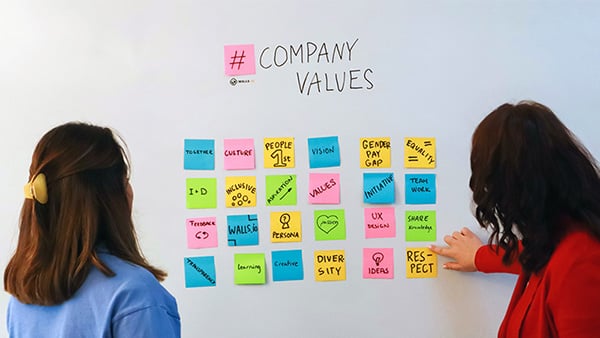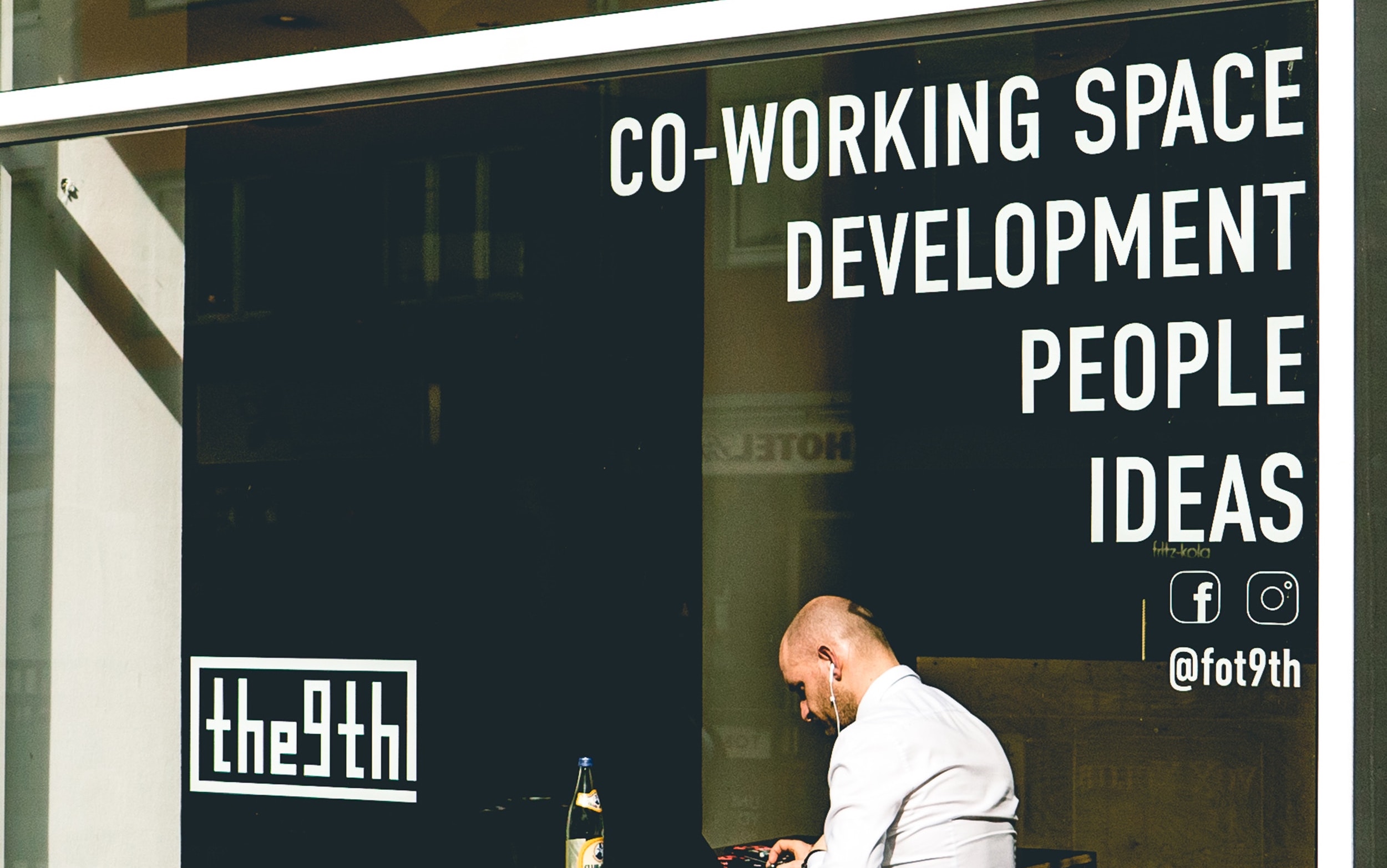Solving the UK recruitment crisis: How share schemes can help
All is not well in the employment landscape. The persistent twin challenges of recruitment and retention are casting a long shadow over business of...
Manage your equity and shareholders
Share schemes & options
Fundraising
Equity management
Start a business
Company valuations
Launch funds, evalute deals & invest
Special Purpose Vehicles (SPV)
Manage your portfolio
Model future scenarios
Powerful tools and five-star support
Employee share schemes
Predictable pricing and no hidden charges
For startups
For scaleups & SMEs
For larger companies
Ideas, insight and tools to help you grow
4 min read
 Naveed Akram
:
17 December 2016
Naveed Akram
:
17 December 2016

It’s an exciting time. Never before has there been a movement in the history of human labour so potent and so fierce. Flexibility and fluidity are becoming the norm in our working practices and inside our organisations. All of this is enabled and amplified through technology — the expansive and exponential network of ideas, value and growth.
In the industrial era, organisations competed by controlling finite resources. Since everything was vertically integrated, business success depended on boxing out the competition. To gain that edge, a market leader like Ford motors painted all its cars black simply because that colour dried the quickest.
In contrast, the resource that companies compete on today is innovation. So instead of extracting finite resources, businesses must organise themselves around their limited talent. Take a look at how Netflix got it right when their top priority was for the leaders to build great teams and in doing so, helped make the company the fastest-growing entertainment business in the world.
The human resource industry is antiquated. When traditional labour-orientated jobs gave way to knowledge based ones many corporations failed to upgrade their recruitment systems. Management by objective (often using rewards as motivation) is the bedrock of present-day HR practices.
As the war for talent matures with the continued shortage of fitting entrants for the new economy — companies big and small battle it out for the brightest minds. If an organisation’s greatest asset is its people, then its most important weapon is its ability to empower them
The reality is, HR is a marketing function. The product is the company and the consumer is the future candidate. The role of the HR professional is not to promote a job but to sell the company DNA to the most fitting candidate. The right employees will adapt and develop if given the opportunity and requisite support.
As HR departments begin the process of updating, they can stay busy ensuring they retain current talent and tell a story that attracts the talent they seek. It also means not being as picky about filling the right skills (more than 30 per cent of required skills on job specs are rarely met). After all, talented individuals rather than ones that just check the boxes on a job description are the true rockstars.
Edwin Jansen is the Head of Marketing at Fitzii a free, cutting-edge hiring platform, but job titles don’t mean much at his company since they got rid of managers over a year ago. In his quest to help connect people with meaningful work, he’s seen an entire generation adopt a new ethos:
The advice [Generation Y] is getting from their parents is to go out and be chosen, get hired by someone, essentially get picked. But it’s not about getting picked anymore…pick yourself.
In many ways, the tables have turned from companies choosing employees to talent deciding where and how they want to work. Jansen continues:
The shift is not just for companies to be agile and purpose driven. The individual too needs to see that their success is going to be self-driven. ‘I am going to pick myself, define what I want to do, what differences I want to make, and how I will be valuable to people. I am my own brand — I am going to own it and make my way.’
As more people choose themselves, the balance of the workforce will tip in their favour. Indeed, macro trends point to the entire working world moving towards a leaner way of operating. Research shows that by 2020 more than 65% of the workforce will be independent contractors. In other words, the limited talent pool for full time workers is only getting smaller while the contingent external workforce is growing.
Independents want what many companies simply cannot provide: autonomy, mastery and purpose. A barrage of upstarts are catering to this emerging market. Vestd permits experts to contribute to startups in exchange for equity in the business. Other notable platforms helping independents flourish include Workmarket, 10x Management, Lystable, and Bonsai The alternative workforce they feed — the gig economy — in turn fuels organisations as they contract and expand indefinitely.
Examples of open collaboration are widespread. Take free, open-source Apache software for example, running on over 35 million servers and powering half of all the web pages in the world (and dwarfing Microsoft). Corporates like P&G work with an open innovation platform called Connect and Develop, freelancers use Amazon’s Mechanical Turk marketplace to work on what they want when they want, and anyone with the inclination and time on their hands, can contribute to Wikipedia.
A human impulse amplified through technological sharing is enabling collaboration and collectivism at unparalleled scales. By definition, in these distributed networks individual autonomy as well as the power of working together is optimised. Youtube has over 1 billion users a month producing and watching an endless stream of videos. Black Duck Open Hub which tracks open source projects has a record of nearly 4 million contributors working on nearly 700,000 projects. No longer just users, the individual becomes an active stakeholder in the system.
For over a quarter of a century intrinsic and social motivations have been at the core of innovation. But there are limits to commercial growth. A divergence from strictly material incentives entails a new type of organising which incorporates a much more integrated and interconnected approach than ever before. A common future where work is working, requires both the individual and the institution to respond to radical changes.
Change is hard yet it’s inevitable. HR is undergoing a facelift, a new generation is choosing themselves and more and more workers are going independent. The new framework emerging is one which is running, decentralised on the digital network, where power is widely distributed and value lives everywhere at the same time. This distribution not only provides for widespread access to the means of production, but inspiration for legacy companies that are lagging behind in the new economy.
The net outcome can help nudge an array of agents to support this change and empower individuals to stay ever more relevant in our increasingly collaborative business landscape.
Jonas Altman is passionate about helping people do their best work. He is an adjunct professor in entrepreneurship and innovation at The University of British Columbia and a regular contributor to The Guardian and The Huffington Post. Jonas is currently penning his second book on the future of work, due out summer 2017.

All is not well in the employment landscape. The persistent twin challenges of recruitment and retention are casting a long shadow over business of...

Work Ghosting: Why UK employees are checking out without leaving, and why The Flexibility Gap matters to all companies. The big trends of 2025...

Remote working is the future of a flexible working pattern. According to the Office of National Statistics, at least half of workers in the UK will...